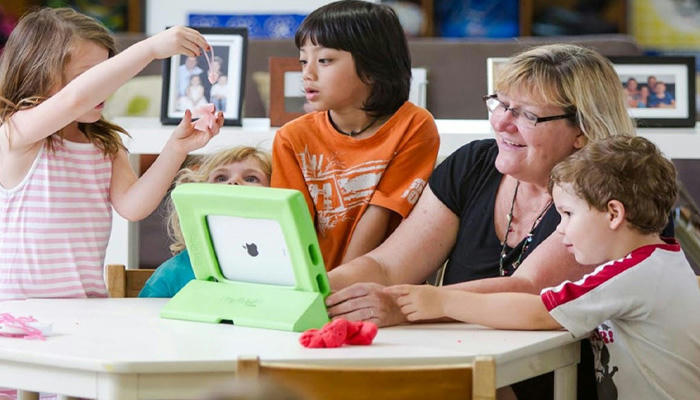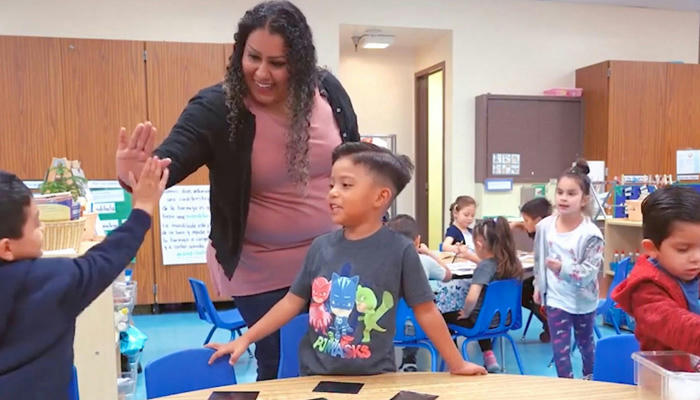Unleashing the Potential: The Significance of Early Childhood Education

Early childhood education lays the foundation for a child's future success and well-being. From the moment a child is born, their brain is rapidly developing and absorbing information at a remarkable pace. This crucial period in a child's life sets the stage for their cognitive, social, and emotional development. By providing quality early childhood education, we are unlocking the potential of our youngest learners and shaping the leaders of tomorrow.
Essential Elements of Early Childhood Education
Key components of early childhood education include a nurturing and supportive environment, developmentally appropriate curriculum, engaging and interactive teaching methods, individualized learning experiences, and strong partnerships with families and communities.
These components work together to promote the cognitive, social, emotional, and physical development of young children and lay the foundation for lifelong learning. Additionally, early childhood education programs often focus on building important skills such as communication, problem-solving, critical thinking, creativity, and social skills, all of which are essential for success in school and beyond. By providing a comprehensive and holistic approach to early childhood education, we can support the overall well-being and development of young children during this crucial stage of their lives.
The Influence of Early Childhood Education on Growth
Early childhood education has a profound impact on the development of young children in various aspects. Research has shown that children who participate in quality early childhood education programs experience improved cognitive abilities, language development, and academic achievement. These programs also help to foster social skills, emotional regulation, and self-confidence, which are essential for healthy social interactions and relationships.
Advantages of Early Childhood Education
Early childhood education provides numerous benefits to young children, setting a strong foundation for their future academic and social success. Through early childhood education, children develop essential cognitive, social, and emotional skills, enhancing their school readiness and overall well-being.
Additionally, early childhood education helps to foster a love for learning, promotes curiosity and creativity, and builds strong relationships with peers and educators. Investing in early childhood education yields lasting benefits for children, families, and society as a whole.
Effective Approaches in Early Childhood Education

Cognitive development: Early childhood education programs help children develop important cognitive skills such as problem-solving, critical thinking, and creativity. These programs provide a stimulating environment that encourages exploration and learning, laying the foundation for academic success later in life.
Social and emotional development: Early childhood education helps children develop important social skills such as communication, cooperation, and empathy. It also helps them learn how to regulate their emotions and navigate social interactions, which are crucial for building healthy relationships.
School readiness: Children who participate in quality early childhood education programs are better prepared for school. They have stronger language and literacy skills, better self-regulation, and a positive attitude towards learning, all of which contribute to their success in the classroom.
Long-term success: Research has shown that children who receive a high-quality early childhood education are more likely to graduate from high school, attend college, and secure stable employment. They also have better physical and mental health outcomes and are less likely to engage in risky behaviors.
Closing the achievement gap: Early childhood education can help level the playing field for children from disadvantaged backgrounds. By providing all children with access to high-quality early education, we can help reduce disparities in academic achievement and improve outcomes for all students.
Obstacles in Early Childhood Education

Best practices in early childhood education are evidence-based strategies and approaches that have been shown to be effective in promoting the healthy development and learning of young children. Some of the key best practices in early childhood education include:
Play-based learning: Providing young children with opportunities for hands-on, experiential learning through play is essential for their cognitive, social, and emotional development. Play-based learning helps children explore their interests, develop problem-solving skills, and build relationships with their peers.
Individualized instruction: Recognizing and responding to the unique strengths, needs, and interests of each child is crucial in early childhood education. Teachers should use a variety of assessment tools to gather information about children's abilities and tailor their instruction to meet the diverse needs of all learners.
Developmentally appropriate practices: Aligning teaching strategies, materials, and activities with the developmental stages and individual differences of young children is essential for creating a supportive and engaging learning environment. Teachers should understand child development theory and use this knowledge to inform their practice.
Building strong relationships: Establishing positive and nurturing relationships with young children is key to creating a safe and supportive learning environment. Teachers should foster strong connections with each child and their families, promoting trust, communication, and collaboration.
Professional development: Continuously learning and growing as an early childhood educator is essential for providing high-quality care and education to young children. Teachers should engage in ongoing professional development opportunities to stay current on research-based practices and improve their teaching skills.
The Outlook of Early Childhood Education

There are several challenges in early childhood education that educators, policymakers, and families face.
Access to high-quality programs: Many families, particularly those from low-income backgrounds, struggle to access high-quality early childhood education programs due to cost, availability, and transportation issues. Ensuring equitable access to quality early education for all children remains a significant challenge.
Teacher preparation and retention: Early childhood educators often face low wages, limited professional development opportunities, and high turnover rates. Recruiting and retaining qualified and experienced teachers is essential for providing high-quality care and education to young children.
Funding and resources: Early childhood education programs are often underfunded, leading to inadequate facilities, materials, and staffing levels. Securing sustainable funding and allocating resources effectively are ongoing challenges in the field.
Inequities in outcomes: Disparities in educational outcomes persist among children from different socioeconomic, racial, and linguistic backgrounds. Addressing these inequities and ensuring that all children have access to high-quality early education is a complex and multifaceted challenge.
Assessment and accountability: Balancing the need for assessment and accountability with developmentally appropriate practices in early childhood education can be challenging. Finding ways to measure children's progress and program effectiveness without overly focusing on standardized testing is a key consideration.
Family engagement: Building strong partnerships with families and communities is essential for supporting children's learning and development in early childhood education. However, engaging families, especially those facing multiple barriers, can be challenging due to language barriers, cultural differences, and lack of resources.
Addressing trauma and adversity: Many young children experience trauma, adversity, and toxic stress, which can impact their development and learning. Early childhood educators need to be equipped with the knowledge and skills to support children who have experienced trauma and create trauma-informed environments.
As we look towards the future of early childhood education, it is essential that we continue to prioritize and invest in programs that support the holistic development of young children. By focusing on key components, understanding the impact, and implementing best practices in early childhood education, we can ensure that every child has the opportunity to thrive and reach their full potential. Together, let us unleash the potential of early childhood education and create a brighter future for generations to come.
